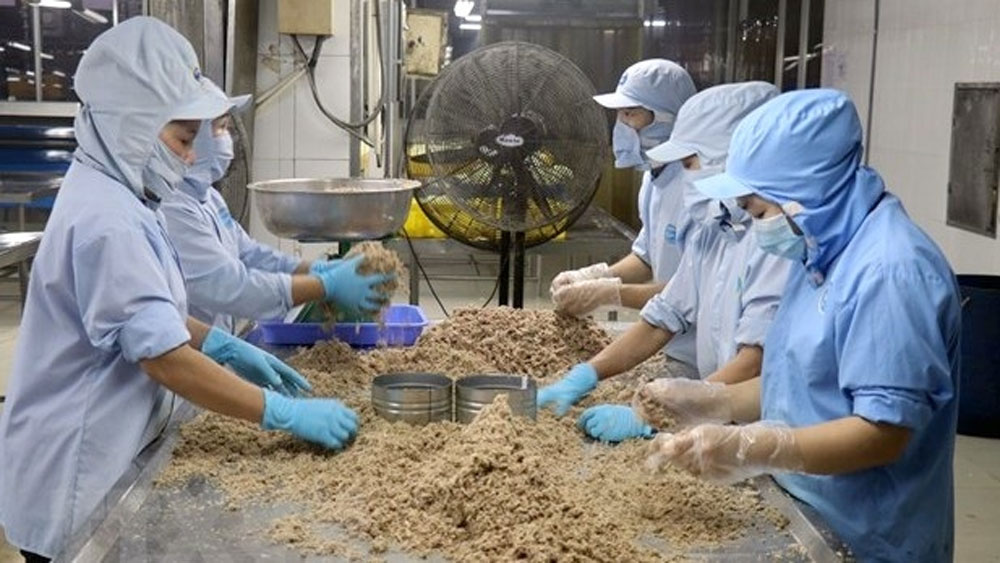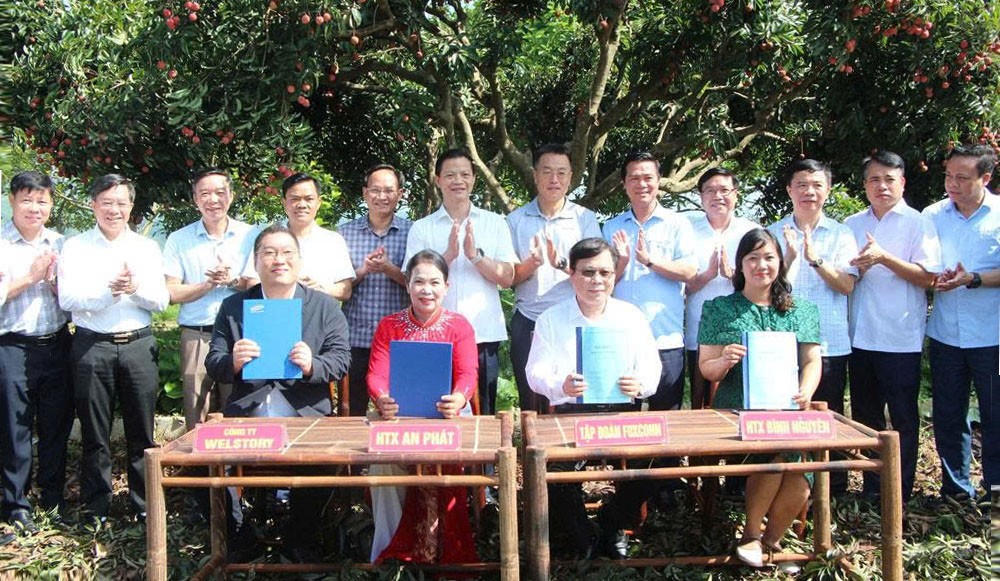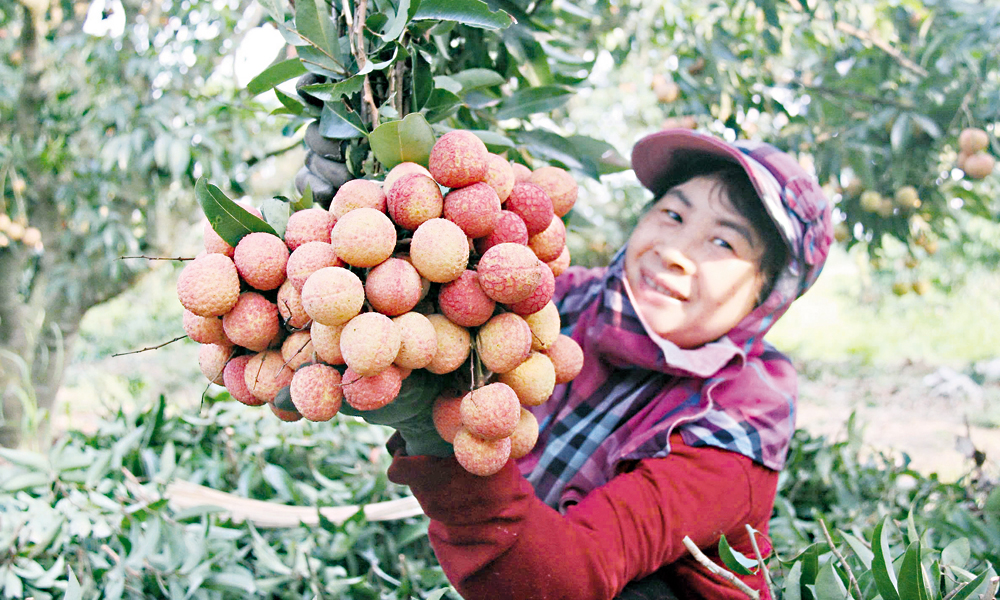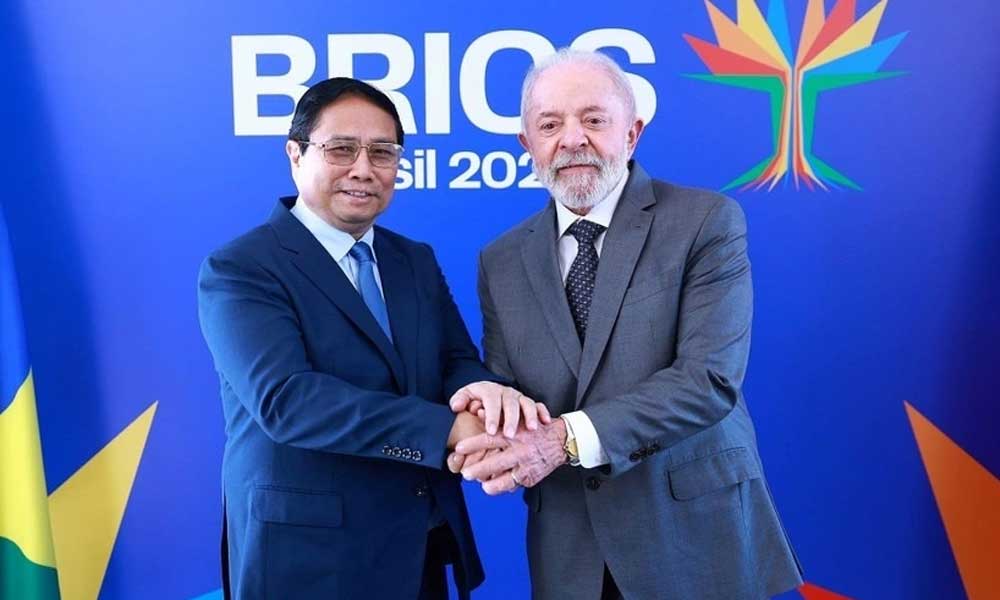Asia Times highlights Vietnam’s positive economic growth
Vietnam’s relative economic success is somewhat surprising considering that the country’s government has affirmed that it won’t put economic recovery ahead of public health, it noted.
Vietnam is not only the envy of its Covid-hit Southeast Asian neighbours, but it has also earned international plaudits for its resilience, according to the article.
 |
|
Workers at a fish processing factory in Vietnam. |
The article cited the Lowy Institute’s Asia Power Index published last month, which revealed that Vietnam’s international image was one of the Asia-Pacific’s best improvers this year, with its score on diplomatic influence gaining six percentage points.
Earlier this year, Vietnam had the third-highest improvement in international reputation because of its handling of the pandemic.
In some ways, Vietnam had advantages over its Southeast Asian neighbours, the article continued.
The country also went into 2020 on the back of two years of robust foreign direct investment flows. In June, Vietnam ratified the EU-Vietnam Free Trade Agreement and recently play host to a signing ceremony for the Regional Comprehensive Economic Partnership, the world’s largest, Asia-centric trade pact which Vietnam is now a member.
According to the article, the IMF in its latest reported noted that Hanoi’s ‘decisive steps to contain the health and economic fallout from Covid-19’ were a primary reason for positive economic growth this year, a recognition of the Communist Party of Vietnam’s quick and competent response.
The IMF expects that recovery to carry over strongly into 2021 with growth of 6.5% as normalisation of domestic and foreign economic activity continues.
In the first nine months of the year, Vietnam recorded US$21.2 billion in new foreign investment projects and overseas capital injections, equivalent to around 80% of the investment it received over the same period last year.
Many of the investments made this year won’t begin operations until 2021 or later, which also points to a healthy economic recovery.
Meanwhile, Chief Representative of the Russian Export Centre (REC) in Vietnam, Robert Kurilo, has affirmed that Covid-19 had no impact at all on Russian exports to Vietnam.
Russia’s Sputnik news agency quoted Kurilo as saying that there was a significant increase in trade meetings between enterprises from the two countries this year, with a great number of contracts signed.
Of note, Tambov Bacon from Russia signed a contract worth US$4 million to supply pork to Vietnam, while the company owning the “Mamrukovskoe” sunflower oil signed a contract worth US$3 million and the Garant Company, which provides canned meat products, signed a US$2 million deal with Vietnamese partners.
A number of Russian companies are also negotiating to supply other goods to Vietnam, including baby food and natural juice.
Sputnik said Vietnamese importers have shown an interest not only in food.
Through the REC, Russia signed a three-year contract to export a batch of dolls worth nearly US$1.5 million to Vietnam, which have already appeared in stores of Vietnam’s largest bookstore chain, FAHASA.
According to Kurilo, Russia has received requests to provide maternal and child cosmetics, materials for animal feed production, and birch plywood for Vietnamese furniture manufacturers.
The two countries are also discussing a number of information technology projects related to the implementation of a “smart city” programme from Russia in Vietnam.
Source: NDO/VNA
 Bắc Ninh
Bắc Ninh















Reader's comments (0)